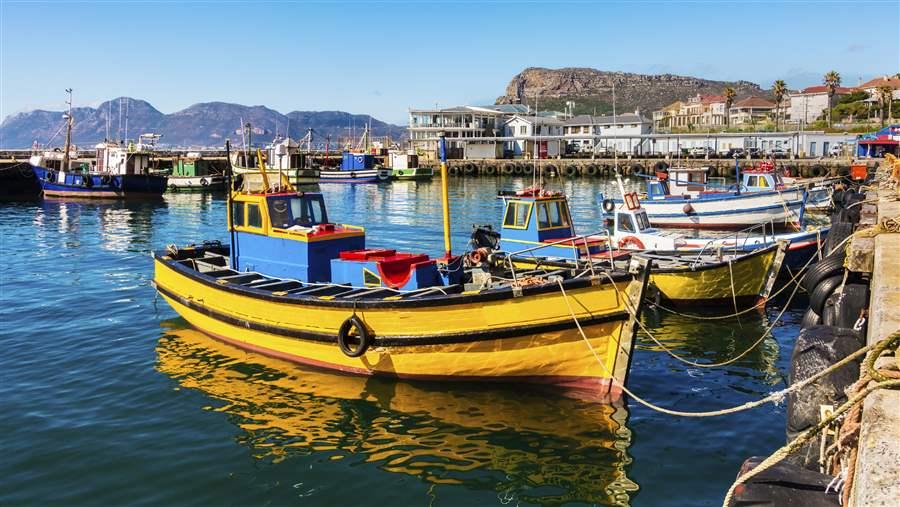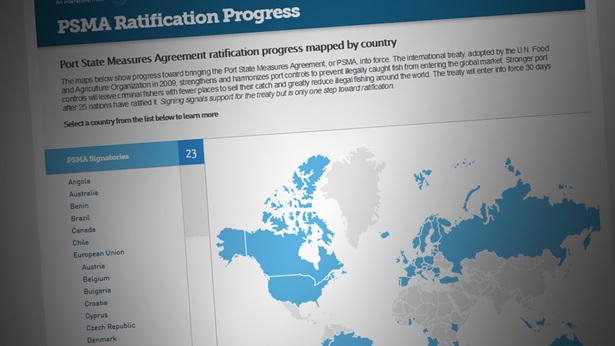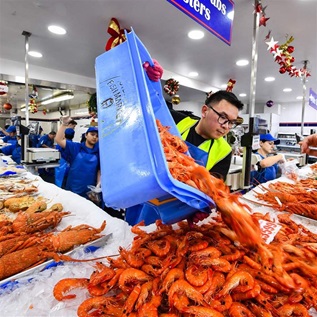South Africa Joins Global Effort to End Illegal Fishing
Latest African nation to ratify PSMA
 © Henrique NDR Martins, iStockphoto
© Henrique NDR Martins, iStockphotoKalk Bay, Cape Town, South Africa
A longtime champion of marine conservation, South Africa has 21 marine protected areas on its coastline.
South Africa joins Seychelles, Gabon, Mozambique, Mauritius, and Somalia to become the sixth African nation to ratify the Port State Measures Agreement, an international treaty designed to prevent, deter, and eliminate illegal, unreported, and unregulated (IUU) fishing. The primary objective of the agreement is to stop illegally caught fish from entering the market by denying access and port services to foreign-flagged fishing vessels engaged in such fishing operations.
The PSMA, adopted by members of the United Nations Food and Agriculture Organization in 2009, is a critical tool in the worldwide fight against illegal fishing, which is estimated to account for up to $23.5 billion worth of seafood every year. This fishing undermines social, environmental, and economic security around the world, especially for residents of coastal communities in developing countries whose livelihoods rely heavily on seafood.
A longtime champion of marine conservation, South Africa has 21 marine protected areas on its coastline and is one of the few countries in the region with the resources to patrol its waters in the effort to stop IUU fishing.
The country has shown its willingness and determination to fight IUU fishing by collaborating with other governments to see cases through the courts to ensure justice at sea. In 2004, after three years of cooperation from the South African government, U.S. prosecutors obtained a guilty plea from Arnold Bengis and two others for violating the Lacey Act, which prohibits the unlawful trade or transport of fish, wildlife, and plants.
According to court documents, Bengis and his co-defendants illegally fished substantial amounts of Patagonian toothfish—commonly known as Chilean sea bass—and rock lobster from South African waters and then exported the catch to his son’s seafood business in Portland, Maine. A judge sentenced the three defendants to a collective total of more than five years in prison and ordered them to pay $7 million in criminal fines. Bengis and his co-conspirators owe an additional $22.5 million in restitution to the government of South Africa.
South Africa’s cooperation and its diligent efforts in the Bengis investigation demonstrate the country’s commitment to putting an end to illegal fishing. The nation’s ratification of the PSMA is a further step.
More African nations are expected to approve this cost-effective way to stop IUU fishing and deny access to fishers attempting to unload illegal catch. The agreement will enter into force once it has been ratified by 25 governments. With 21 ratifications, we are closing in on the homestretch.
Tony Long directs the ending illegal fishing project for The Pew Charitable Trusts.












